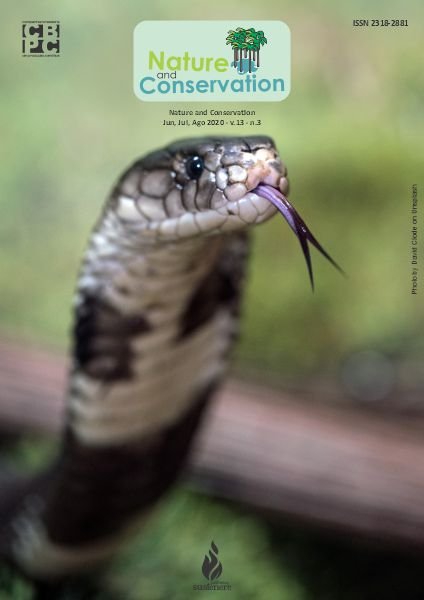Analysis of fires in the municipality of Balsas/MA
DOI:
https://doi.org/10.6008/CBPC2318-2881.2020.003.0015Keywords:
Environmental impact, Fire, VegetationAbstract
Burning is an agricultural practice widely used in Brazil and which causes numerous environmental impacts, such as soil impoverishment and loss of biodiversity, knowing what the causes are and where the fires occur with greater intensity is extremely important for the creation prevention and fire fighting plans. Therefore, this study aimed to quantify the number of fires in the municipality of Balsas/Maranhão for the period from June/2017 to June/2018 (1 year). The methodology was based on data collection of fires foci provided by INPE (National Institute for Space Research) and the use of geoprocessing tools and GIS (Geographic Information System). With the research it was noticed that more than 800 fires foci were registered in the studied period. Therefore, the observed situation of fires in Balsas can be attributed to the susceptibility resulting from prolonged dry climate, but mainly due to the actions of criminal fires, mainly those related to deforestation and the advance of the agricultural frontier, since it is a municipality that plantation soybean grows more each day. With a survey that has not yet been registered in the municipality of Balsas/MA 800 foci of fires in the highest number of outbreaks of fires were recorded the months of June to September 2017 and the month of June 2018.
Downloads
Downloads
Published
Issue
Section
License
The CBPC - Companhia Brasileira de Produção Científica (Brazil CNPJ: 11.221.422/0001-03) the material rights of the published works. The rights relate to the publication of the work anywhere in the world, including rights to renewals, expansions and dissemination of the contribution, as well as other subsidiary rights. All electronically published works may subsequently be published in printed collections under the coordination of this company and / or its partners. The authors preserve the copyright, but are not allowed to publish the contribution in another medium, printed or digital, in Portuguese or in translation.









